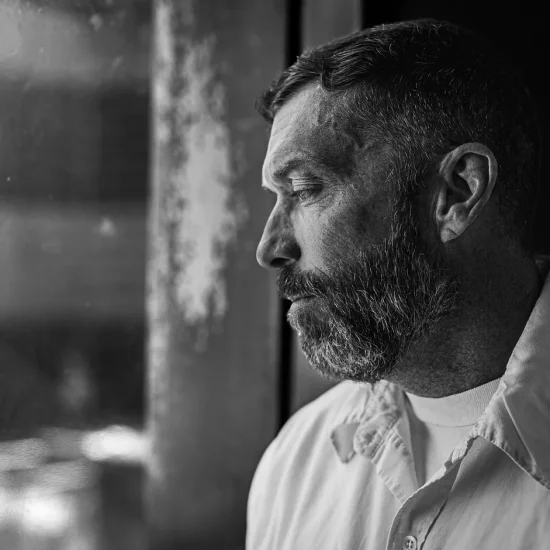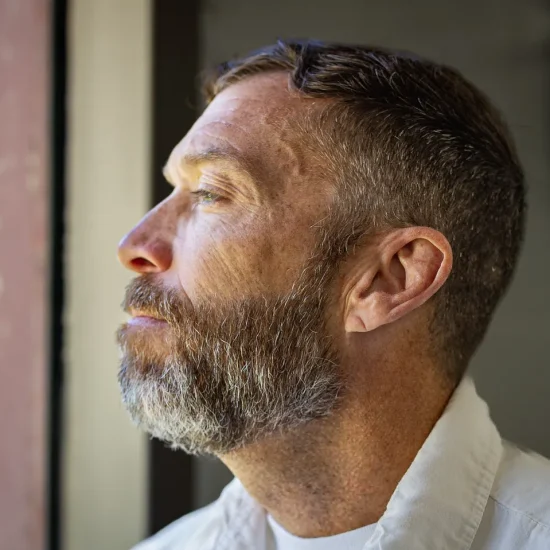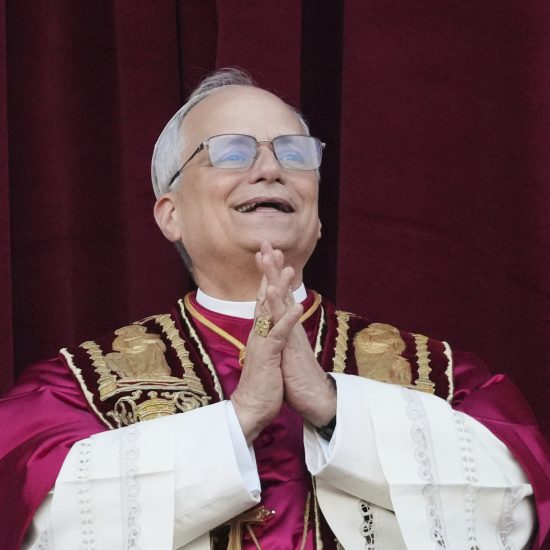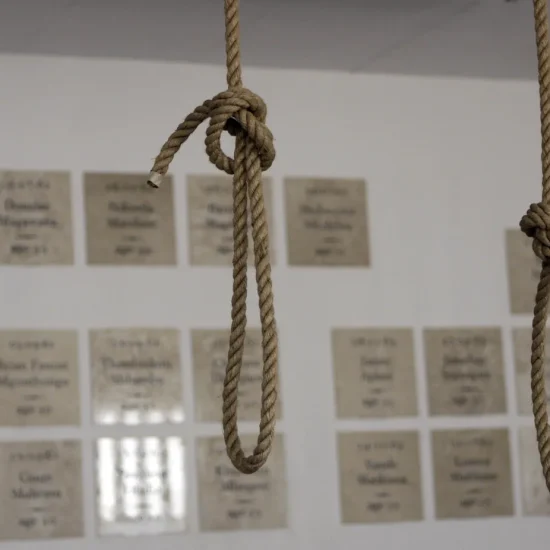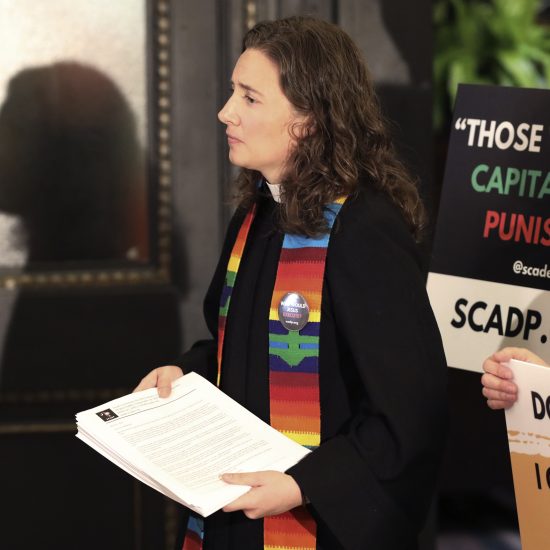By Vicki Brown, Word&Way Associate Editor
"And if one member suffers, all the members suffer…." (I Corinthians 12:26)
Wally Magdangal and his wife, Matilda, live 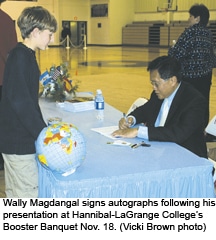 and minister by that verse. God spared Magdangal from a death sentence in Saudi Arabia in 1992. Since then, the couple has shared their testimony and reached out to others through their prayer advocacy ministry, Christians in Crisis.
and minister by that verse. God spared Magdangal from a death sentence in Saudi Arabia in 1992. Since then, the couple has shared their testimony and reached out to others through their prayer advocacy ministry, Christians in Crisis.
Speaking at the Hannibal-LaGrange College Booster Banquet on Nov. 18, Magdangal said God sent him to Saudi Arabia during the first Persian Gulf War to minister and witness to Muslims.
The church he led soon became one of the largest underground congregations in the country. Magdangal was targeted as Saudi Arabia's most wanted criminal because of the church's growth.
On Oct. 14, 1992, Saudi police abducted the pastor in front of his wife and daughter and destroyed the family's home. Officers shackled him and tossed him into a 3-foot-by-4-foot cell.
The pastor suffered daily beatings, indoctrination sessions and torture at the hands of Saudi officials. Prison guards allowed little sleep and provided little food.
In bad physical shape and nearly skeletal, Magdangal almost died in a torture chamber one night. "The torture chambers are one of the scariest places on earth," he said.
Beaten almost to unconsciousness, Magdangal was asked to renounce his faith and embrace Islam.
Although he had watched and experienced the horrors his torturers could inflict, he began to feel sorry for them, he said. "It was the grace of God that allowed…me to see them from a different perspective and to feel pity for them," he said.
Granted an opportunity to speak to them that night, he told them about Calvary and Jesus' sacrifice for them. "But when I got to the cross, they told me to shut up," he said.
Muslims are taught that Christ was not crucified. No crossroads are allowed, and airplanes are not permitted to fly over the country during Islam's five calls to prayer because they would cast cross-shaped shadows.
The pastor refused to renounce his faith. He asked his captors how he could give up when Christ had died for him.
Magdangal asked the torturers holding a gun to his head to promise they would confess to God as soon as they pulled the trigger. He asked them to "cry out to Jesus and make Him your Savior." One man trembled and dropped his gun.
He was taken before a magistrate and then to the Saudi Supreme Court. The court sentenced him to be hanged on Christmas Day, with his body to remain on display for three days.
Prison "forced me to unceasing prayer…and also to unhindered praise," Magdangal said.
One day Magdangal asked God for the opportunity to lead the most hardened prisoner to Him. That night the opportunity came. From that point, Magdangal had a bodyguard, which led to his becoming friends with guards and other prisoners. Several became Christians.
A guard sneaked paper and a pencil to Magdangal so that he could write down Scriptures to share with the new believers.
The power of prayer, God's grace and an outcry by the international community spared Magdangal from the death sentence. Saudi officials released him on Christmas Eve 1992.
Now living in Sacramento, Calif., Magdangal and his wife seek opportunities to remind Christians that from 300 to 700 believers are killed in many parts of the world daily.
"It's not too late to make a difference," he told his HLG audience. "The world will know that there are men and women who will live for Him."
"All gave some, some gave all" is engraved on a war memorial near California's capitol, Magdangal shared. "We need to give up anything and everything" for God, he added. (12-01-05)


